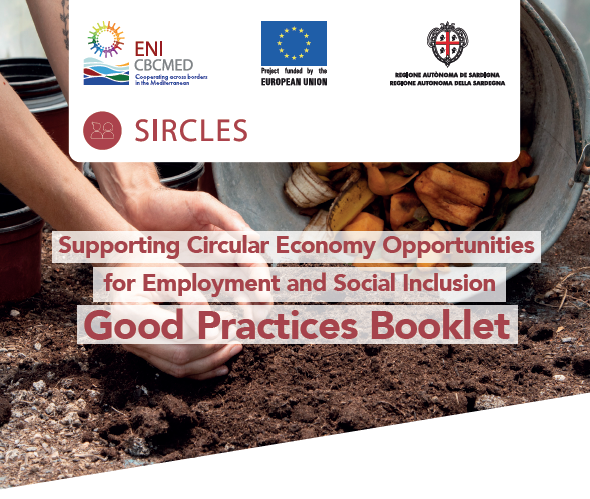SIRCLES project good practices booklet: turning biowaste into social inclusion

At the heart of the SIRCLES project lies a commitment to promoting social inclusion. By tackling the issue of biowaste, the project not only mitigates environmental concerns but also creates opportunities for marginalized communities to be actively involved.
One of the practical aspects of the SIRCLES project is the development of small-scale, low-cost composting plants. These facilities efficiently convert biowaste into valuable compost, reducing waste and providing a sustainable source of nutrients for agriculture.
Moreover, education and awareness played a crucial role in the SIRCLES project. By sensitizing people and restaurants to the importance of responsible waste management, the project encouraged active participation in the reduction of biowaste.
With a practical focus on composting, community engagement, and cross-border cooperation, the SIRCLES project represents a significant step towards addressing the issues of biowaste and social inclusion. It demonstrated that with the right perspective and collective effort, we can turn challenges into opportunities for a more sustainable and inclusive future.
Read more in the SIRCLES Project Good Practices booklet.









